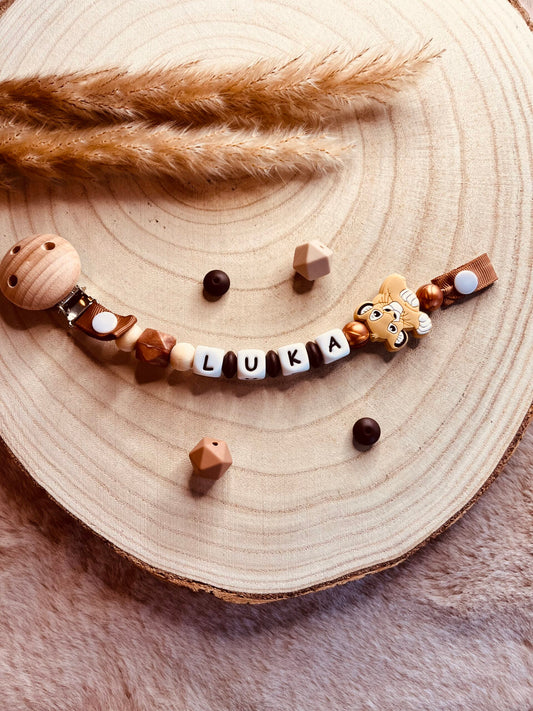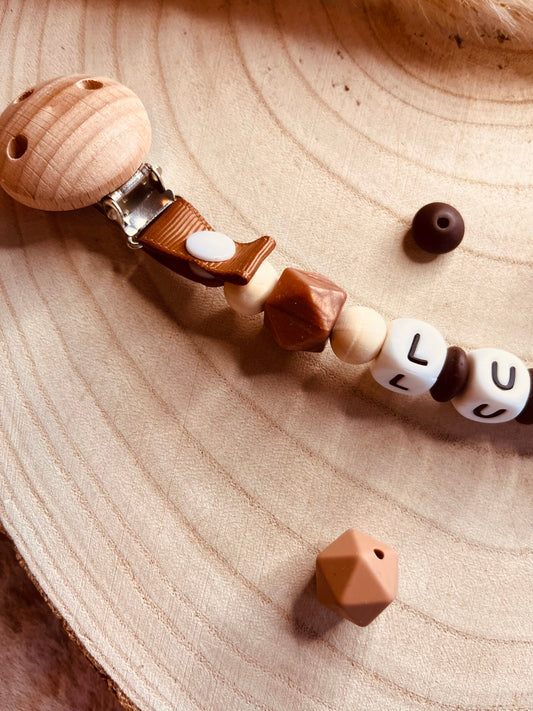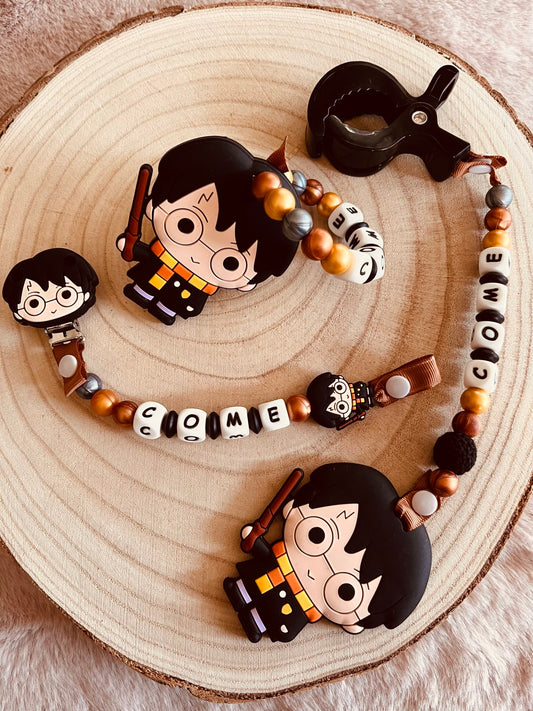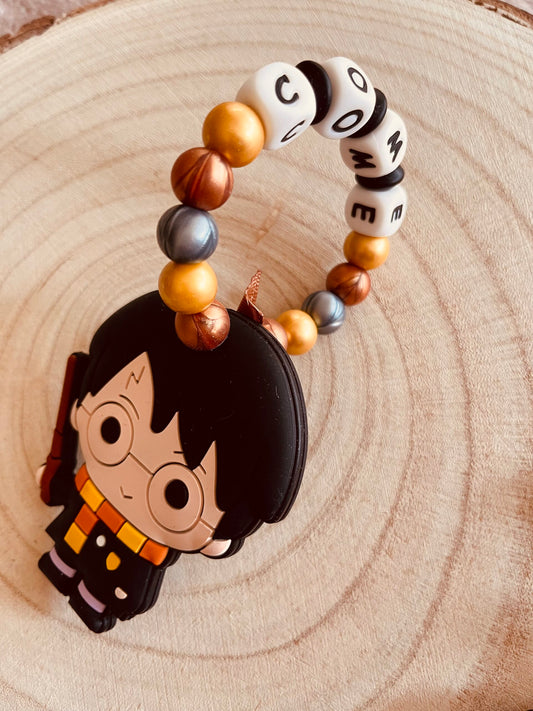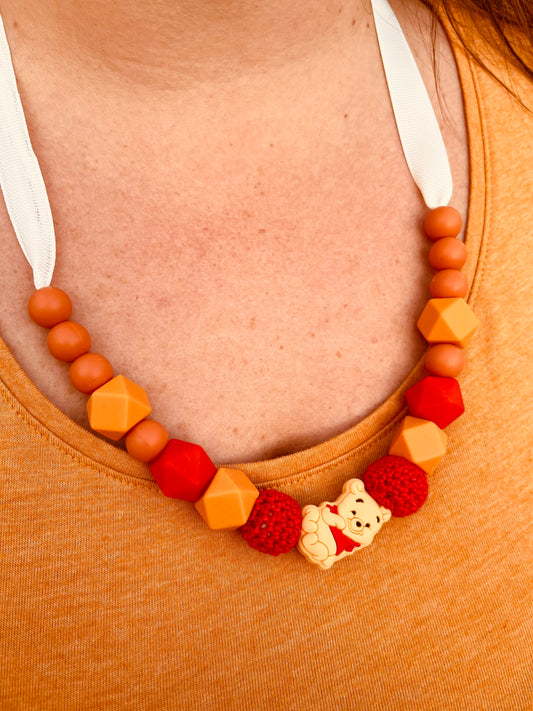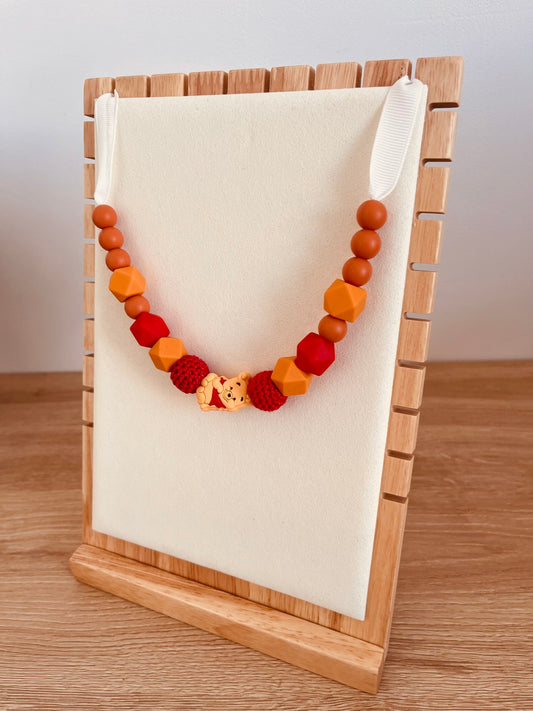Baby pacifier: What are the advantages and disadvantages ?

The pacifier, or pacifier, is an ever-present accessory in the lives of many babies and their parents. It often sparks heated debates about its usefulness and impact on child development. In this article, we will take an in-depth look at the pros and cons of using a pacifier for infants, and we will never forget its pacifier clip so as not to lose baby's pacifier!
Benefits of using a baby pacifier:
- Instant relief : One of the most obvious benefits of using a pacifier is its instant soothing power. Sucking is a natural and comforting activity for babies, often reminiscent of the feeling of sucking at their mother's breast. A pacifier can therefore quickly calm a fussy or crying baby, providing welcome relief for parents.
- Sleep aid : Many babies use pacifiers as a valuable sleep aid. They can help them fall asleep faster and stay asleep longer by feeling secure and comforted by the pacifier's presence. For some parents, this means more peaceful nights and more consistent sleep.
- Reducing the risk of sudden infant death syndrome (SIDS) : Some studies have suggested that proper pacifier use during sleep may reduce the risk of sudden infant death syndrome (SIDS). It is important to note that this does not mean that pacifiers are a guarantee against SIDS, but they may have a protective role.
- Useful distraction Pacifiers can also serve as a useful distraction for babies and toddlers in a variety of situations. Whether it's during a car ride, a doctor's visit, or a moment of frustration, a pacifier can keep them occupied and calm.
- Possibly easier to wean than thumb sucking : Many parents find it easier to wean their child off a pacifier than off a thumb. By controlling access to the pacifier, parents can decide when to help their child stop using it.
Disadvantages of using a baby pacifier:
- Potential addiction : One of the main disadvantages of using a pacifier is the risk of addiction. If the pacifier is used excessively, the child can become dependent on this source of comfort, which can make it difficult to manage times without it.
- Dental problems : Prolonged pacifier use can impact tooth and jaw growth. Dental experts warn against continued pacifier use beyond the age of 2 to 4 years, as it can contribute to problems such as misaligned teeth, malocclusion, and an open bite.
- Risk of ear infections : Using a pacifier can increase the risk of ear infections because the baby's saliva on the pacifier may contain bacteria that can enter the ear when the baby sucks on it.
- Breast-pacifier confusion Breastfeeding experts warn that early pacifier use can lead to confusion between the mother's breast and the pacifier. For breastfed babies, this can complicate breastfeeding, as they may have difficulty latching on properly.
- Hygiene : Pacifiers can become a breeding ground for bacteria if not properly maintained. It is crucial to clean the pacifier regularly to prevent the buildup of germs and microbes that could be harmful to your baby's health.
- Difficulty weaning : Weaning from pacifiers can be challenging for some children. They may become emotionally attached to their pacifiers, which can make the weaning process stressful for both them and their parents.
Tips for safe pacifier use:
- Moderate use : It is essential to use the pacifier in moderation, reserving it for times of need, such as comfort or falling asleep.
- Regular cleaning : To prevent bacteria buildup, be sure to clean the pacifier regularly with warm water and mild soap.
- Proper weaning : Encourage weaning from pacifiers at an appropriate age to avoid prolonged use. It may be helpful to discuss the weaning strategy with a healthcare professional.
In conclusion, using a pacifier for babies has both advantages and disadvantages. It is crucial for parents to understand the implications of pacifier use and make informed decisions based on their child's needs and development. Every child is unique, and what works for one may not be suitable for another. The key is to find a balance that works for both baby and parents, always keeping in mind the child's safety, oral health, and overall well-being. Communication with healthcare professionals can also be valuable in guiding parents in their choices regarding pacifier use.


